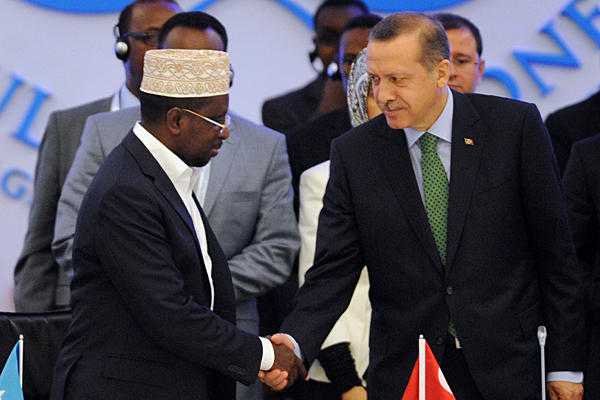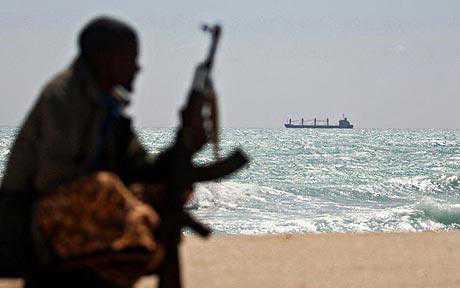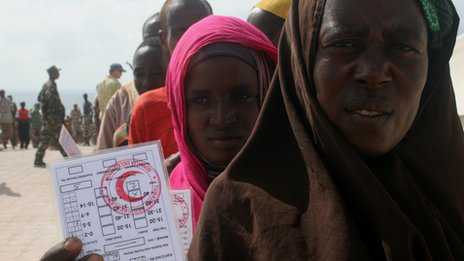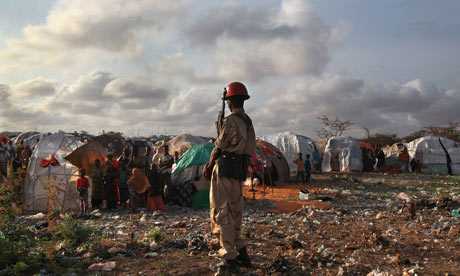Somalia’s President Sheikh Sharif Sheikh Ahmed, left, shakes hands with Turkish PM Recep Tayyip Erdogan before he addresses a conference that aims to support Somalia in a transition process, Istanbul, Turkey, June 1, 2012.

ISTANBUL — Turkey is reaching out to war-torn Somalia with a huge redevelopment effort – in Ankara’s latest effort to expand its economic and political influence in Africa and play a greater role in the international arena.
Rebuilding Somalia, bringing peace and security, and helping establish a stable government top Turkey’s list of goals in the East African nation. With its thriving economy, Ankara is also looking at future trade possibilities in the energy, construction and agricultural sectors.
Challenges
For now, Turkey is faced with a major challenge.
Somalia has not had a stable central government for two decades. The country’s United Nations-backed transitional government is fighting the Islamic extremist group al-Shabab, though pro-government forces have gained the upper hand in recent months. Also, Somalia is emerging from a major drought last year.
Turkish media have reported that Turkey is working to end the fighting. Turkish aid agencies are operating in regions controlled by the Somali government and al-Shabab. And Turkey has said it is prepared to offer training and support to Somalia’s government.
Also, Turkish engineering contractors have been in the Somali capital, Mogadishu, working to reconstruct a city left in ruins by years of fighting.
Must act now
According to Turkish Prime Minister Recep Tayyip Erdogan, now is the time to act.
“Somalian mothers and fathers are hurting, and it is possible to stop this, and Turkey is not waiting to act to help the Somalians wondering what others may think,” he said.
Turkey has made several high-profile moves as part of its commitment to Somalia.
Last year, Prime Minister Erdogan was the first Western leader in decades to visit Somalia. In March, Turkish Airlines became the first major commercial carrier to fly directly to Somalia in more than 20 years. Last week, Turkey hosted an international conference that focused on helping Somalia establish a stable government and elect a new president by August 20.
Turkish Foreign Ministry spokesman Selcuk Unal said Turkey has sent more than $50 million in humanitarian aid for the Somali people since Erdogan’s visit to Mogadishu.
“From Turkey’s point of view, since the visit of Prime Minister Erdogan to Somalia, we have collected from Turkish government funds, from the Turkish people, or from Turkish society $350 million, of which $51 million has been extended to the people of Somalia via air or by ships, humanitarian assistance material,” Unal said. “In addition, we will be continuing our reconstruction efforts on all of these issues, energy, reconstruction, transportation, those sorts of issues.”
Broader stability
To Veysel Ayhan of the Center for Middle East Peace and North Africa Studies, Turkish interest in Somalia stems mainly from the historical ties between the two nations. Turkish officials think bringing stability to Somalia will lead to stability in the broader region, Ayhan said, noting that Turkey’s efforts are part of its “soft power” politics and desire to play a huge role in the international community.
“Turkey is trying to get the attention of the international community in Somalia so that Somalia’s development would be supported by more international actors,” Ayhan said.
Foreign Ministry spokesman Unal said Turkey’s efforts are part of its growing commitment to sub-Saharan Africa.
Voice of America
June 8, 2012
via Turkey set to heavily invest in Somalia | SomalilandPress.com – Somali News in English.



